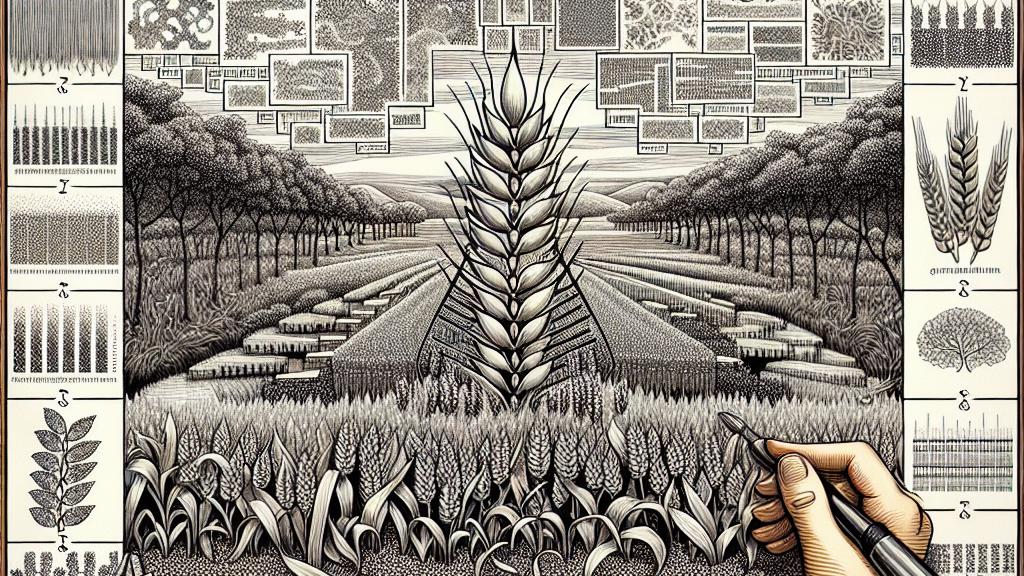Exploring the Genetic Evolution of Wheat for Future Breeding
Overview
- A landmark study unveils the intricate genetic history of wheat, shedding light on its evolutionary path.
- Key structural variations have been identified, revealing their importance in disease resistance and environmental adaptability.
- This research holds transformative potential for global food security through innovative, targeted breeding approaches.

The Groundbreaking Genesis of the Study
In an awe-inspiring collaboration among scientists from Murdoch University in Australia and several leading Chinese institutions, a bold project unfolded with one primary goal: to decode wheat's complex genetic heritage. This extensive effort culminated in the comprehensive assembly of 17 meticulously sequenced genomes, each a vital piece of the puzzle that illustrates wheat's adaptation journey over the past 70 years. These genomes do more than catalog genetic sequences; they uncover vital structural variations that enhance the plant's resilience to diverse environmental challenges and its capacity to combat diseases. By revealing these genetic adaptations, this research not only enriches our understanding of wheat's evolution but also sets the stage for breeding programs aimed at creating crops that can thrive under varying climatic conditions.
Gene Discoveries: Shaping Cultures and Culinary Practices
Among the many revelations, the study unearthed crucial genes linked to disease resistance—particularly those residing in the 1RS chromosome, which had long been overlooked. This chromosome acts as a safeguard, containing vital genetic information that helps wheat defend against notorious threats like powdery mildew and rust. Yet, the significance of this research extends beyond medicine; it intertwines with cultural narratives. For instance, variations in wheat hardness have shaped culinary traditions around the globe, influencing everything from the making of soft, delectable noodles in China to the creation of robust varieties suitable for bread-making in Europe. Furthermore, tracing the evolution of wheat from a spring-exclusive to a hardy winter crop reveals the strong correlation between agricultural history and climatic shifts, a testament to nature’s influence on human practices.
Charting a Bright Future for Wheat Breeding
Armed with the remarkable discovery of nearly 250,000 structural variations, the implications of this research are profound. It provides critical insights that could revolutionize breeding strategies vital for ensuring food security worldwide. The advent of innovative gene cloning techniques—such as reduced representation sequencing—allows scientists to identify and utilize resistance genes swiftly, creating an exciting window into the future of crop science. Imagine a scenario where new wheat varieties are engineered to combat pests and withstand unpredictable climate changes—this is not just a dream but an imminent reality. As we stand on the brink of this agricultural revolution, the prospect of robust, resilient wheat crops promises not only to secure our food supply but also to enrich our lives, showcasing the extraordinary potential that lies in understanding and harnessing wheat's genetic legacy.

Loading...